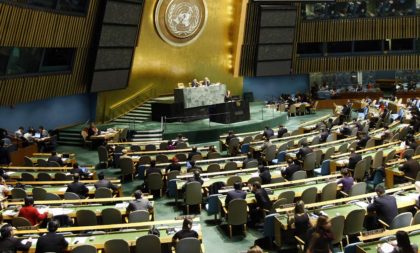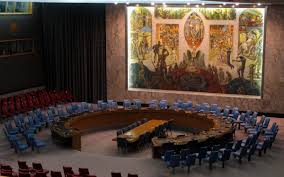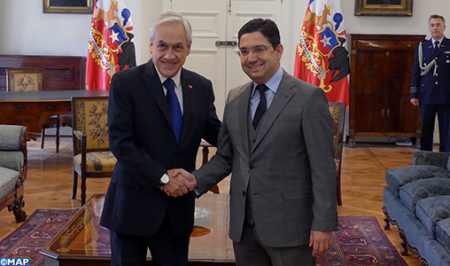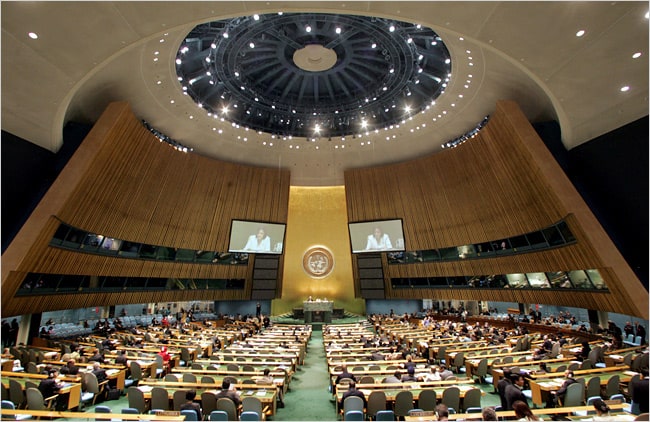Several petitioners have denounced, at the United Nations, the continuing human rights violations committed by the Polisario in the Tindouf camps against women and children, praising the realistic autonomy plan offered by Morocco for a lasting resolution of the Sahara regional conflict.
Addressing the UN fourth committee convening in New York, Ms. Amanda DiCianni, from NGO Rescue and Relief International, sounded the alarm over the military training of children in the Tindouf camps by Polisario militiamen.
She deplored the deteriorating living conditions in the camps infested with gang violence, insecurity, corruption, and criminal activities of Polisario. Given the dangerous situation in the camps and its impacts on stability in North Africa, she urged the United Nations to urgently adopt Morocco’s autonomy plan as “the most humane, expeditious, and peaceful resolution possible,” adding that the status quo could worsen the plight of the population held in the camps.
The president of the U.S “Teach the Children International”, Nancy Huff, denounced the systematic misappropriation, by the armed Polisario separatist militias of humanitarian aid intended for populations sequestered in the Tindouf camps.
Mrs. Huff pointed to “serious dysfunctions” in Algeria’s management of food aid in the camps, citing the scathing report by the European Anti-Fraud Office (OLAF), which revealed the involvement of the polisario in the massive theft of humanitarian aid that ends up in the pockets of leaders of the armed separatist group.
The American petitioner also mentioned the World Food Program (WFP) report carried out by an independent investigative team and published on July 3, 2023, specifying that this credible report confirms massive theft of humanitarian aid in the Tindouf camps.
She called on the international community to take the necessary measures to hold the separatists accountable.
Mrs. Huff further stressed that the Autonomy plan proposed by Morocco in 2007 represents the “most humane and most peaceful” solution likely to put an end to the ordeal the populations are undergoing in these camps located in North-west Algeria.
In her plea, the American petitioner also paid tribute to the populations of Morocco’s southern provinces who displayed an incredible spirit of solidarity to contribute to the national surge in aid for the victims of the Al Haouz earthquake.
Mr. Teguh Santosa, RMOL Network, said he visited the Moroccan Sahara and was impressed by the socioeconomic development in the region. The realistic autonomy plan offered by Morocco for the Sahara has been supported by many countries in the world, he said, adding that nearly thirty countries have so far opened consulates in the Sahara cities of Laayoune and Dakhla, confirming their recognition of the Moroccanness of the Sahara.
Ms. Vivian Eads, Capitol Hill Prayer Partners, advocating for a peaceful resolution to the Sahara issue, said that young people in the Tindouf camps face limited opportunities for their future. She urged speedier efforts to settle this issue through implementation of Security Council resolution 2654 (2022).
After highlighting the recognition of Moroccan sovereignty over the entire Sahara territory by several Member States, she urged the United Nations to adopt the Morocco Autonomy Plan for the Sahara, saying this plan is conducive to peace and stability in the region.
Mrs. Hayat Laariche, a member of Morocco’s House of Representatives, said that her role as an elected representative of the Sahrawi people was the result of free and fair elections, held under a multi-party system.
The southern region witnessed the highest turn-out in Moroccan elections, she said, adding that this was an important way of ensuring that “we can manage our affairs on our own through a real transfer of power.”
Pointing to interference by some neighboring countries, she condemned the actions of the Polisario militia, an armed group and remnant of the cold war, which is trying to impose its own ideas on the Sahrawi people.
For her part, Leila Dahi, from Laayoune, also a member of the House of Representatives, said that she was chosen by the Sahrawis to represent them and to defend their fight for democracy.
She also represents the Sahrawis in the African parliament, actively working to tackle peace and security issues on the continent. “I am not unique,” she said, but rather part of a generation of Sahrawis who have been raised in peace.
While Morocco is seeking peace, the others are sowing divisions, she said praising Morocco’s pragmatic autonomy plan offering enduring stability and shared prosperity.



